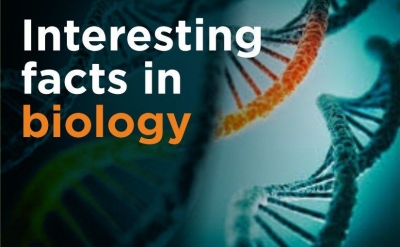
1. During pregnancy, the baby in womb can help repair a mother’s organ damage by giving its stem cells. In Biology, it’s a form of chimerism called the Fetomaternal microchimerism (FMc). Alternatively, this is a survival mechanism by which the fetus ensures maternal fitness in order to enhance its own chances of survival.
2. Some humans have a total of 207 bones instead of 206. The Fabella is a tiny sesamoid bone in the knee that has been making a come back in recent years. At present, around 39% of the population have the extra fabella bone, which is three times more in 100 years, compared to only 11% of world population having it in 1918. Scientists theorize, this emergence is due to increased nutrition and humans getting taller and heavier.
3. A newborn baby has only one cup (0.2 liters) of blood in the whole body, whereas, the healthy adult has about 1.3 to 1.6 gallons or 4.0 to 5.0 litres of blood circulating inside their body.
4. Lungs are the only organ in the human body that can float on water. In fact, medical examiners use the “lung float test” during autopsies to determine if a baby was stillborn (died in the womb). If the lungs float, the baby was born alive; if the lungs don’t float, the baby was stillborn.
5. Speaking about lungs, did you know that you can live with just one lung? Patients with lung cancer, can still live healthily even after a lung is removed, retaining at least 70% of their previous respiratory function. Surprisingly, the remaining lung will expand to fill the empty space of the other lung in the chest.
6. If you pulled out the blood vessels from an an average child and laid out in one single line, it would stretch to over 60,000 miles. The entire circumference of the earth at it’s largest is 24,900 miles.
7. Your eyes blink over ten million times a year!
8. The entire surface of your skin is replaced every month, which put another way means you have about 1,000 different skins in your life.
9. Next time you’re wounded, and can’t find a bandage, just ask the friendly spider next wall. Spiderwebs/cobwebs have natural antiseptic and anti-fungal properties, and were used in ancient Greece and Rome by physicians to make bandages. They’re also thought to be rich in Vitamin K.
10. While you’re sleeping, your ears continue to function. They will pick up sounds, but your brain acts as a filter and blocks out the unimportant ones.
11. More humans are evolving to have three arteries in their arms. The Median artery which is present during the early human embryonic stage is later replaced by the ulnar and radial artery during developmental changes. However new research shows that median artery is now prevalent in about 35% of the population and researchers predict that people born 80 years from now might all carry a median artery. This is an example of Micro-evolutionary changes that are occurring in the human body.
Credit : Quora
Picture Credit : Google

